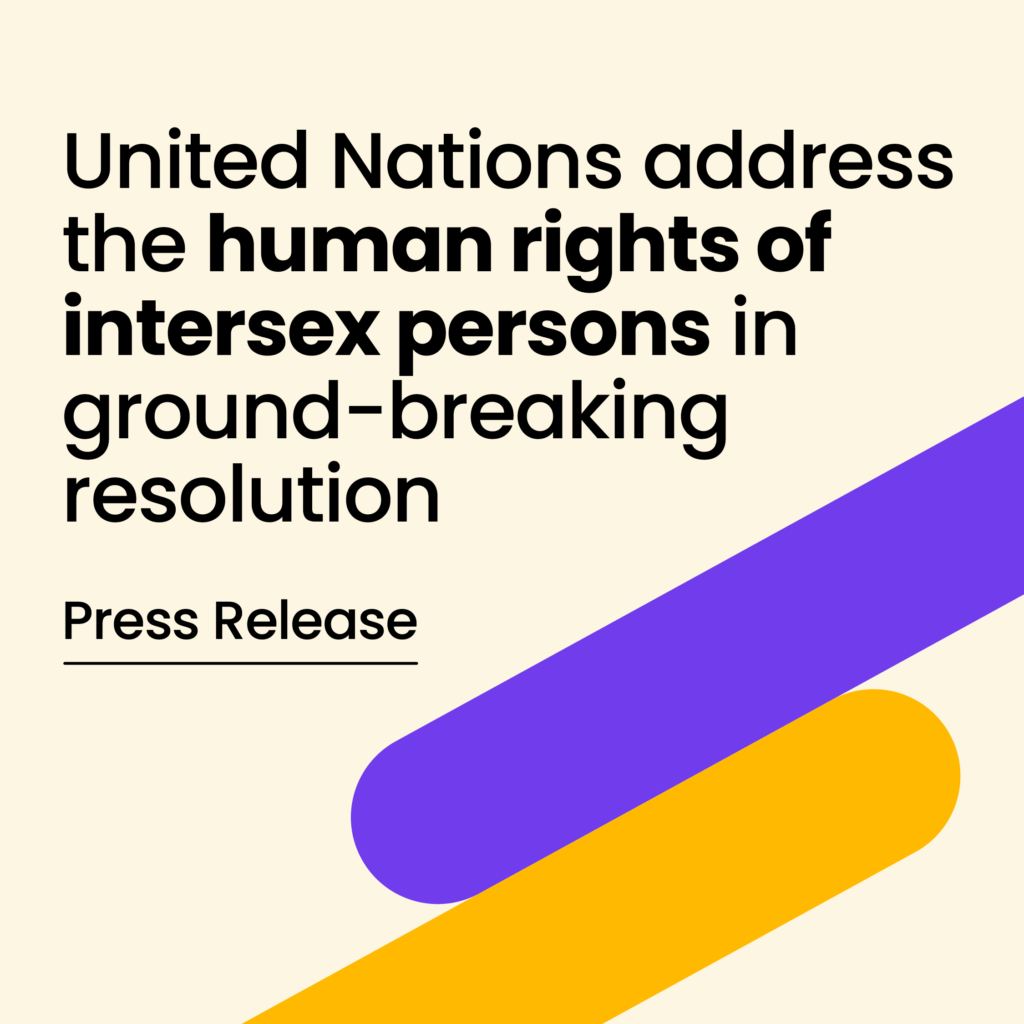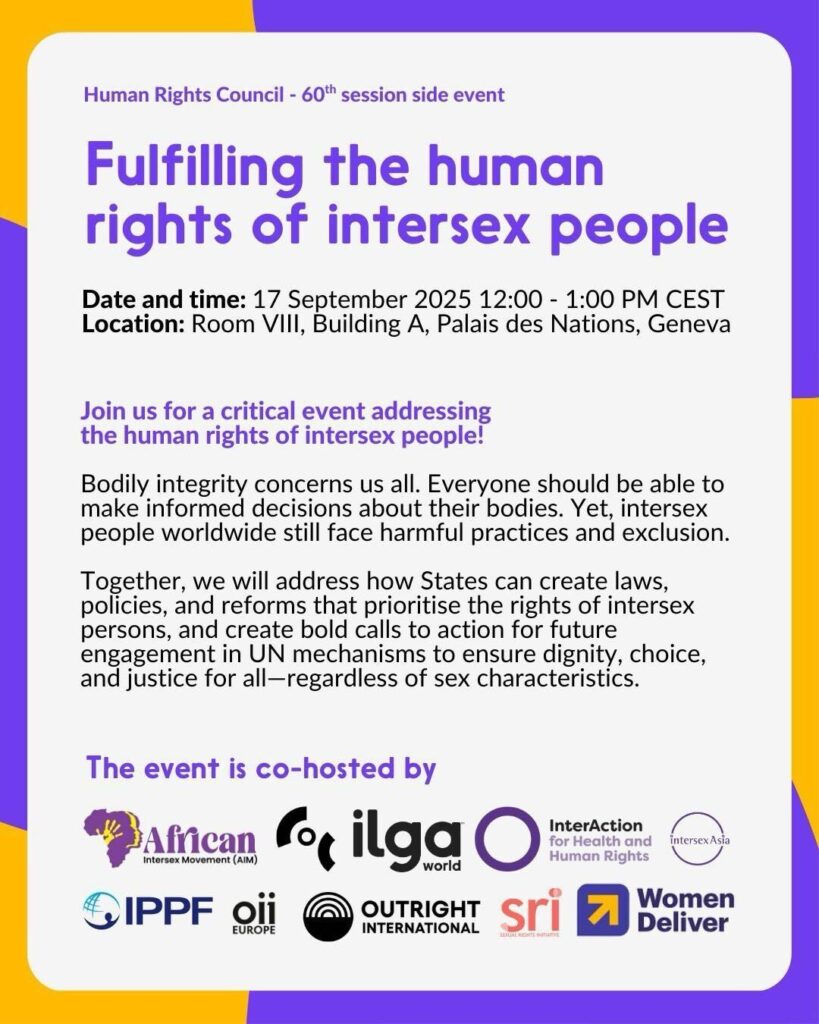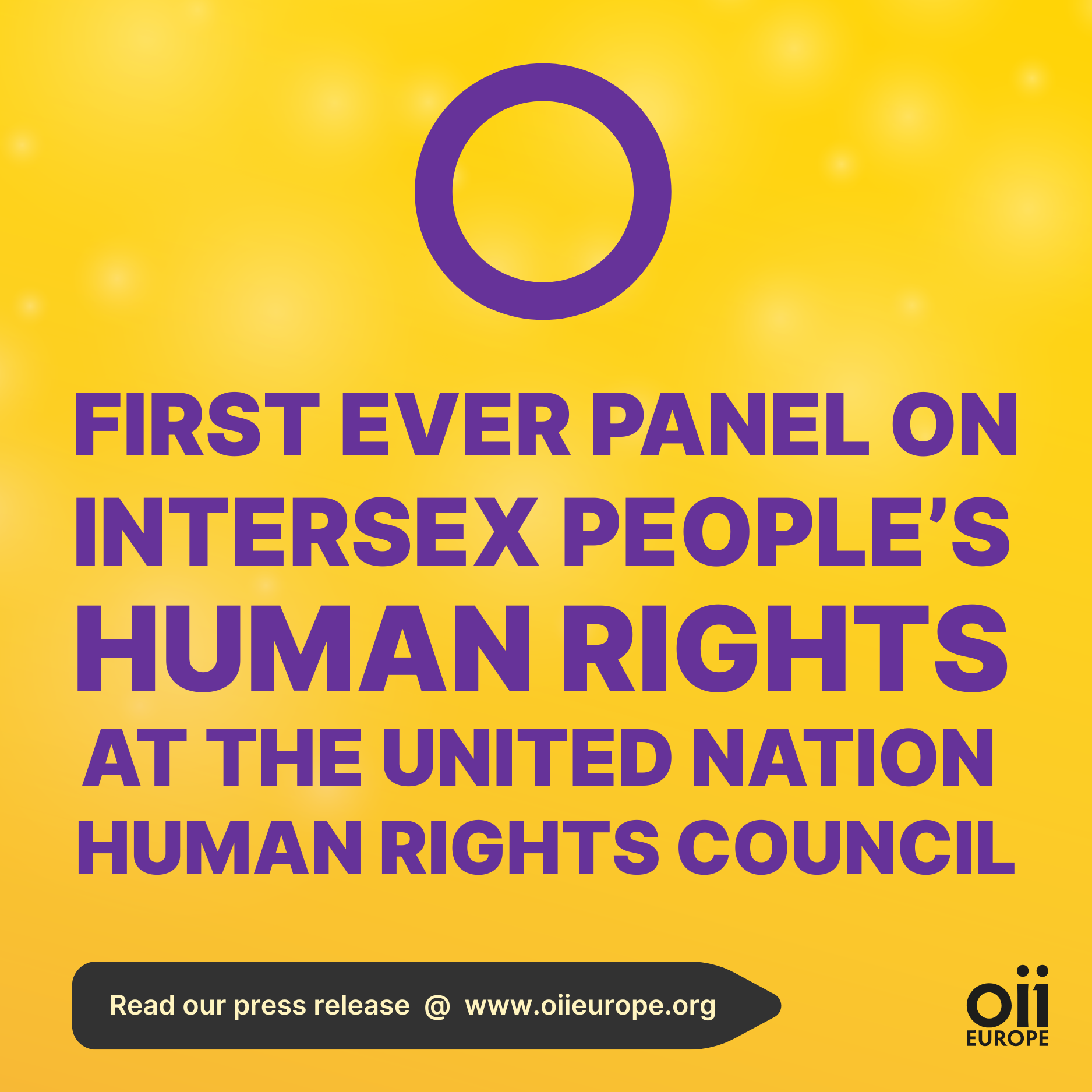OII Europe Press Release
On the 15th of September 2025 the milestone panel discussion on combating discrimination, violence and harmful practices against intersex persons took place at the 60th United Nations Human Rights Council. This historic event is a testament to the progress made in past years on UN level to recognize the human rights breaches intersex persons face across the globe and the dire need to enhance and further promote the protection of intersex people across UN member states.
In her opening statement, Nada Al-Nashif, Deputy High Commissioner for Human Rights, on behalf of the United Nations High Commissioner for Human Rights, emphasized how “medically unnecessary interventions are still frequently performed on intersex infants and children without their full, free and informed consent” and highlighted that such surgeries are, according to the World Health Organization, “often carried out for cosmetic reasons, or because of outdated beliefs that are not supported by medical research” and can lead to physical harm, and to “lifelong pain and emotional suffering”.
In their speeches, panellists Jeff Cadangahan, Executive Director at Intersex Philippines and Board Member of Intersex Asia, Yuri de Boer, Chair of the Expert Committee of the Steering Committee on Anti-Discrimination, Diversity and Inclusion at the Council of Europe, Undersecretary of Public Health of Chile, Andrea Albagli Iruretagoyena, and UN Special Rapporteur on Health, Tlaleng Mofokeng, addressed the broad scope of human rights violations intersex people face, the harmful impact of pathologisation of variations of sex characteristics, the importance of national political will and the strong need for international instruments which set standards and provide guidance to ensure the human rights of intersex people as well as their protection is upheld.
The panel was followed by supporting interventions by 35 UN Member States, by the WHO and 12 short statements by National Human Rights Institutions and Non-Governmental Organisations, including statements by intersex activists and human rights defenders speaking in collaboration with ECOSOC NGOs. These included, in speaking order: Dan Christian Ghattas, Executive Director of OII Europe; Obioma Chukwuike, Executive Director of Intersex Nigeria; Crystal Hendricks, Program Officer – Sex Characteristics at ILGA World; Morgan Carpenter, Executive Director at InterAction for Health and Human Rights; Kimberly Zieselman, Senior Advisor for Global Intersex Rights at Outright International. We thank IPPF, COC Netherlands and Action Canada for their collaboration with the global intersex movement.
The panel also served as a launch event for the landmark UN Human Rights Council report on intersex persons, entitled ‘Report A/HRC/60/50 Discriminatory laws and policies, acts of violence and harmful practices against intersex persons’, which was published last week.
OII Europe highly welcomes this landmark panel and the excellent report. The report puts a spotlight on the systemic discrimination, harmful practices, and violence that intersex people face around the world. It calls on states to take urgent action to ensure that intersex human rights are protected, respected, and fulfilled.
The report clearly identifies how the breaches of intersex human rights are rooted in misconceptions. It highlights how at the heart of the violations faced by intersex people are pathologisation, harmful myths and misinformation. The report shows how false ideas – often embedded in medicalisation and law – fuel stigma, abuse, and invasive practices.
The report also stresses the importance of legal safeguards and remedies, and the need for strong legal protections against discrimination and violence. It urges governments to create comprehensive laws, provide access to justice, and offer remedies to those whose rights have been violated.
Respect for bodily autonomy and informed consent are at the core of intersex rights. The report stresses the urgent need to end unnecessary, non-consensual medical interventions on intersex children and adults, and to ensure ethical, person-centred healthcare.
Last but not least, the report demonstrates how some countries are beginning to show the way forward with progressive laws and policies that uphold intersex rights. The report urges global collaboration and the sharing of best practices, so that every intersex person, everywhere, can live with dignity and equality.
The report had been called for by the groundbreaking 2024 UN Resolution on Intersex Combating discrimination, violence and harmful practices against intersex persons: resolution / adopted by the Human Rights Council on 4 April.
Related posts
Press release on the UN resolution on the human rights of intersex people

Human Rights Council – 60th session side event “Fulfilling the human rights of intersex people”



